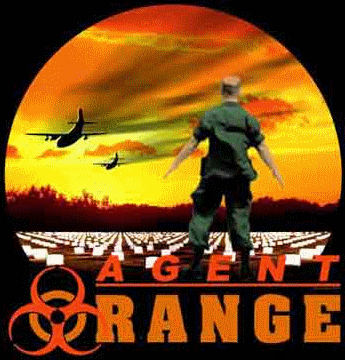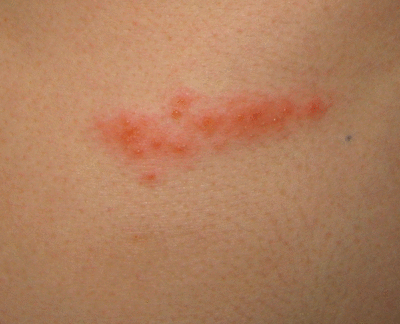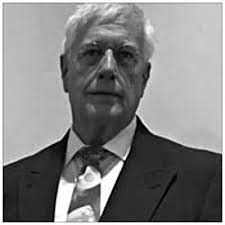SUVIVING 7 YEARS WITH AGENT ORANGE CANCERS

By Terry Madick STAFF WRITER
Vietnam War Body Count Continues
While reading a couple of recent editions of Veteran, a publican of the Vietnam Veterans of America, I notice in the “TAPS” section, an alarming number of obituaries for veterans in their fifties and early sixties.
Although the cause of death is not always indicated, I suspect that Agent Orange was involved with most of them. How many of these could have been avoided with better and continued education of how Agent Orange can affect one’s health decades after exposure to this defoliant carcinogen.
I never thought that my tour in Vietnam would have an effect on my health after thirty years, but it did. I was also unaware of illnesses attributed to Agent Orange exposure or their symptoms.
Nine years ago, I contracted an itching rash. I was diagnosed with an allergic reaction tied to exposure to something on my Northern Michigan property. I was given a cream to apply to the rash and used it for four months.
The rash seemed, I thought, to be responding to the cream but then I noticed, while shaving, a couple of lumps on my neck. After a month of badgering from my wife and sons, I went to my doctor to have the lumps looked at.
He sent me for a number of x-rays and CT scans culminating in having the lumps removed and biopsied. The final diagnosis was that I had an advanced state of Hodgkin’s Lymphoma, which had masticized to one of my lungs.
The earlier rash had been a symptom of the Hodgkin’s disease. This diagnosis triggered a battery of tests which found I also had prostate cancer, unrelated to the lymphoma. Later, I found out that both of these cancers were attributed to Agent Orange exposure.
The Hodgkin’s Lymphoma was aggressive and life threatening, which meant the prostate cancer had to be kept from growing while the lymphoma was being treated. My Hodgkin’s disease had spread to many of the lymph nodes throughout my body: making the use of radiation treatment too dangerous.
The remaining treatment option was a combination of strong chemo therapies. The chemo drugs used in the 6 month biweekly treatment were high doses of Adriamycin, Bleomycin, Vinblastin and Dacarbazine or ABVD as it is commonly referred to.
Two of the drugs, Adriamycin and Bleomycin, damaged my heart and lungs. My Hodgkin’s Lymphoma is in remission but it’s treatment left me with congestive heart failure, an aortic valve replacement and a reduced lung capacity.
While my Lymphoma was being treated, I was given weekly steroid shots to block testosterone production as a means to prevent the progression of the prostate cancer. After my Lymphoma was determined to be in remission, my urologist was allowed to treat my prostate cancer.
His recommendation was to have the prostate removed when the cancer was first detected but after being made aware of the severity of my Lymphoma, he said surgery was not usually an option for a patient who might have less than 10 years to live.
I disregarded his reluctance and pushed for the surgery as it provided the best chance for a long term survival and I didn’t want to contend with a possible recurrence of this cancer if there was also the risk of relapse in my Lymphoma. There was also the possibility that other Agent Orange cancers or related diseases would manifest during the same time frame.
I am currently 7 years in remission of Hodgkin’s Lymphoma and prostate cancer. I was fortune; the results could have been less positive considering the advanced stage of the Hodgkin’s Lymphoma when diagnosed.
I have learned these things from my experience:
- Everyone who served in Vietnam was exposed to Agent Orange
- Agent Orange maladies can occur at any time, even decades after exposure
- Early detection of a disease allows more treatment options and better long term survival chances.
I feel that the Department of Veterans Affairs can and should do more than publishing an Agent Orange pamphlet that has limited distribution to some Vietnam Veterans. The above lessons should be applied to any and all hazardous material exposure, be it chemical, biological or radiological.
When a potential health threat is found to result from such an exposure, every means available should be used to notify service personnel that might have been affected and to bring all medical personnel, public and private, up to speed as to what to look for and how to begin the processes of diagnosis and treatment.
These notifications are not being done.
Terry Madick is a Vietnam veteran retired from the Federal Reserve Bank and living in Michigan.

Gordon Duff posted articles on VT from 2008 to 2022. He is a Marine combat veteran of the Vietnam War. A disabled veteran, he worked on veterans and POW issues for decades.
Gordon is an accredited diplomat and is generally accepted as one of the top global intelligence specialists. He manages the world’s largest private intelligence organization and regularly consults with governments challenged by security issues.
Duff has traveled extensively, is published around the world, and is a regular guest on TV and radio in more than “several” countries. He is also a trained chef, wine enthusiast, avid motorcyclist, and gunsmith specializing in historical weapons and restoration. Business experience and interests are in energy and defense technology.
ATTENTION READERS
We See The World From All Sides and Want YOU To Be Fully InformedIn fact, intentional disinformation is a disgraceful scourge in media today. So to assuage any possible errant incorrect information posted herein, we strongly encourage you to seek corroboration from other non-VT sources before forming an educated opinion.
About VT - Policies & Disclosures - Comment Policy



